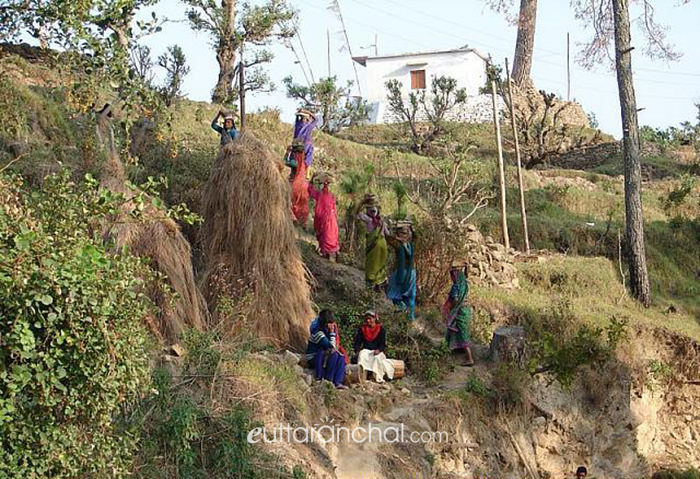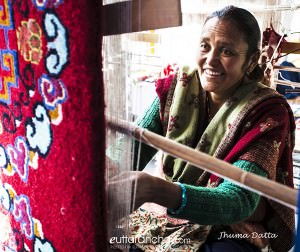Recently, Dehradun-based NGO Rural Litigation and Entitlement Kendra (RLEK) is honoured with the Future Leadership award for its work in the field of women’s empowerment.
The leading NGO (Non-Government Organisation) Rural Litigation and Entitlement Kendra is bestowed with the Future Leadership award for its work in the field of women’s empowerment. This all India competition was organised by Resource Alliance and supported by Rockefeller foundation and EdelGive Foundation. The head of NGO, Padmashri Avdhash Kaushal will be receiving a training at Wolfson College, Oxford University with the support of London Business School and funded by Rockefeller foundation.
This achievement of Kaushal is a moment of pride of us, but her dedication to empower women should not get unnoticed. There is no doubt that women of Uttarakhand have always been actively participating in many movements and play a significant role in representing the issues related to society. Even after all this, they are still an excluded group of our society. They are not equal to men of Uttarakhand in many terms.

In Uttarakhand, women spend most of their time in working on the fields and doing household work. Some Govt. schemes like MGNREGA help them to unite and work for their society and village. These type of schemes makes them financially strong. Photo eUttaranchal.
Women are excluded from decision making processes. Despite having so many women empowerment programmes for their education, welfare and economic development, they are still deprived of facilities necessary for quality life. They are excluded in development processes as well. In such a scenario, self-help groups by women are playing a constructive role in resolving this problem.

A woman weaver in the village of Uttarakhand. Photo src: Jhuma Dutta
As per the ‘World Bank’s Empowerment and Poverty Reduction: A Sourcebook’ the definition of the term ‘empower’ in its broadest sense is the `expansion of freedom of choice and action.’ For the year of 2014-15, the government of Uttarakhand proposed the amount of Rs. 37,080 million under gender budgeting which is 14 percent higher than last year. The concept of empowerment includes four dimensions. These are the cognitive (critical understanding of one’s reality), the psychological (feeling of self-esteem), the political (awareness of power inequalities and the ability to organize and mobilize) and the economic (capacity to generate independent income) factors.
The government has reserved one-third seats for women in Panchayati Raj institutions for self-government and is promoting women van Panchayat (elected council to manage village forests), and innovative government programmes such as Mahila Samakya (women’s empowerment) by mobilising women for self-empowerment.
Recently, the Uttarakhand government has launched the first Mahila Dairy Milk Empowerment scheme. Under this scheme, nearly 558 women from the weaker sections of the society have been given cows or a cheque of Rs 40,000 each, to purchase cows, in 13 districts of the state. The government is also planning to add 7,000 more women very soon.
One of the recent instance of successful women empowerment programme is from Tehri Garhwal where WFP (World Food Programme) in collaboration with state government initiated foodgrain banks. These banks are used by poor during extreme weather conditions and managed by trained women of the community. This village level programme not only addresses seasonal food insecurity but also work to empower local women. These managers decide the interest rate on food loan. So far, there are 55-grain banks have been set up in food-insecure villages.
Some other schemes by the government for women empowerment are:
1. Uttarakhand Women Integrated Development Scheme: It aims to minimise the workload in the daily life of women by developing decision making capacity in women, creating understanding amongst the women on Panchayati Raj System and Women self-employment.
2. Nanda Devi Kanya Dhan Yojna: The scheme aims to provide monitory aid to the women on the birth of girl child with the objective to reduce gender discrimination and to stop female foeticide.
To know more about Other Schemes/Institutions Click here or visit wecd.uk.gov.in
Thank you Rachna ji for extending your support.
It is my dream to work for empowerment and unification of women of India.
I wish to dedicate the rest of my life towards the mission of making the women of India, a formidable force so as to compel the elected representatives of our polity to treat the issues relating to protection (of body, dignity and right to equality), education and economic independence of women as their first priority.
My services, as an Advocate-on -Record of the Supreme Court of India and as an Uttarakhandi, are unconditionally offered for the purpose.
Would wait for guidance from the experience of Ms. Kaushal in the realisation of my above dream.
Regards
Rachana Joshi Issar.